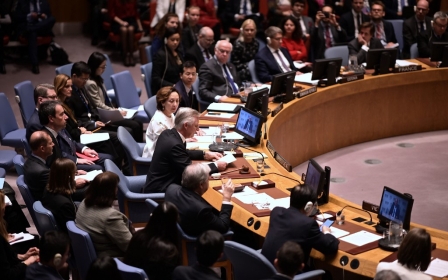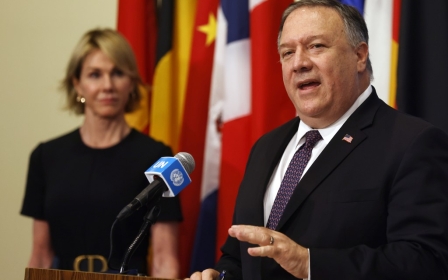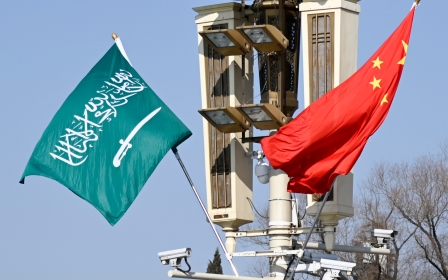Iran to allow UN watchdog access to two suspected former nuclear sites
Iran agreed to allow inspectors from the UN nuclear watchdog access to two sites suspected of having hosted undeclared nuclear activity in the early 2000s, easing a months-long standoff over the issue.
Iran and the International Atomic Energy Agency (IAEA) made the breakthrough on Wednesday during a visit by IAEA chief Rafael Grossi to Tehran.
"Iran is voluntarily providing the IAEA with access to the two locations specified by the IAEA," Grossi and the head of Iran's nuclear agency, Ali Akbar Salehi, said in a joint statement. "Dates for the IAEA access and the verification activities have been agreed."
In exchange, the agency said it would pursue no further questions regarding this issue.
"The IAEA does not have any further questions to Iran and further requests for access to locations other than those declared by Tehran," the statement added.
New MEE newsletter: Jerusalem Dispatch
Sign up to get the latest insights and analysis on Israel-Palestine, alongside Turkey Unpacked and other MEE newsletters
The IAEA had for months sought access to the sites in Tehran and Isfahan where Iran is suspected of having stored or used undeclared nuclear material.
In June, the IAEA stepped up pressure on Iran when its board of governors passed a resolution calling on Tehran to let inspectors into the sites and to cooperate with the agency. Until Wednesday, however, Tehran had refused to grant access, arguing that the UN nuclear watchdog's requests were based on allegations from Israel and had no legal basis.
"Iran, like before, is ready to cooperate with the IAEA," Iranian President Hassan Rouhani told Grossi on Wednesday, according to state media.
He called the agreement "favourable" and said it can help "finally settle issues". Rouhani also called on Grossi to consider that Iran has "sworn enemies" with nuclear weapons who do not cooperate with the IAEA and are "always seeking to cause issues" for Tehran.
Grossi's trip took place shortly before a 1 September meeting of the joint commission on a landmark nuclear deal signed in 2015 between Tehran and world powers.
Under the 2015 nuclear deal between Iran and six world powers, the Islamic Republic had accepted IAEA inspections and a curb on its nuclear programme in exchange for lifting UN sanctions.
Since the US left the deal in 2018, Tehran has begun to undo some of the restrictions placed on it, including the size of its uranium stockpile.
On Tuesday, the president of the UN Security Council said the body was not moving forward on the US bid to reimpose sanctions on Tehran.
Middle East Eye delivers independent and unrivalled coverage and analysis of the Middle East, North Africa and beyond. To learn more about republishing this content and the associated fees, please fill out this form. More about MEE can be found here.





